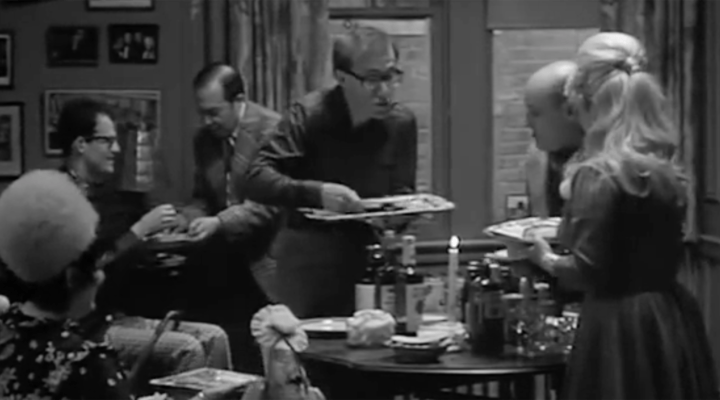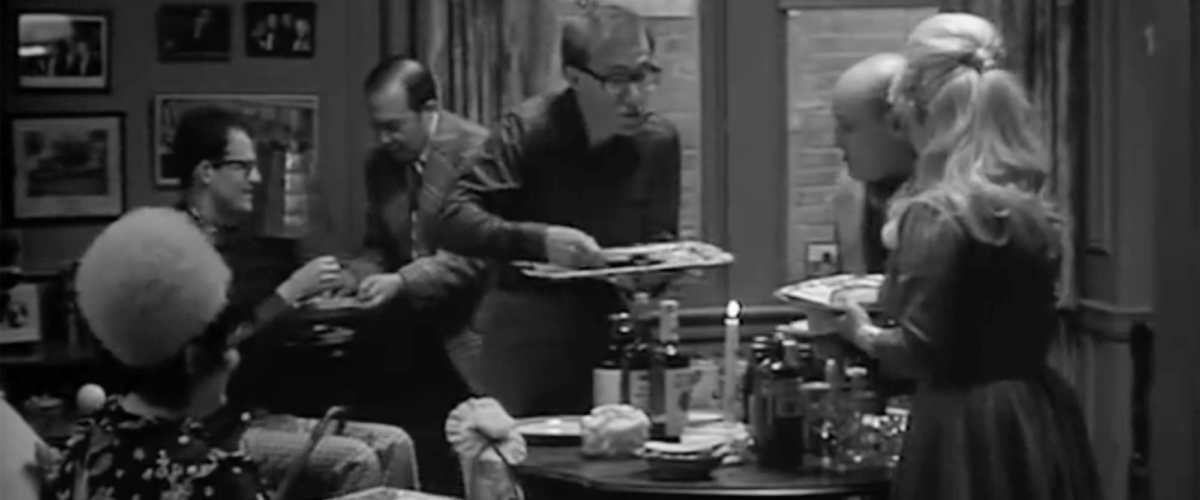I recently read an article about an organization that provides background checks for churches. If a church wants to feel safe about those who volunteer to work with children or serve in a leadership position, it might be a good idea to get information about that person’s past. The article was full of statistics and inferences, but it was not the numbers that caught my attention. It was the attitude of quoted interested parties that struck me as curious.
Researchers did what statisticians like to do. They took the numbers, applied them to a specific situation and came to a conclusion. Don’t worry if their conclusion is based on faulty logic and incomplete research. The researchers speculate that more than 60,000 people have some type of criminal history in Southern Baptist churches.

Terry Austin
I am not sure why they chose to single out Southern Baptists. Do we really believe Methodists are more law-abiding? I know some Southern Baptists who believe that “mixed bathing” is a walk on the wild side. For those of you younger than 40, “mixed bathing” does not refer to taking a shower with your girlfriend. It means boys and girls swimming together, actually in the same body of water and wearing complete swimsuits.
I am sure the background check folks were not searching for criminal backstrokers or for the truly serious sinner who likes to spend Sunday afternoon at the mall. They identified people who had been accused and convicted of committing a felony, a significant crime.
“It is so important in this day and time to run these checks,” said a church secretary in Tennessee. “We just don’t know who is coming into our church. We want to think everyone is a good Christian, but we can’t know that.”
I am concerned about the statement made by this church secretary. Apparently, one who has a criminal background cannot be a “good Christian.” With that definition of a good Christian, we must eliminate a person like the Apostle Paul or anyone else who has experienced the amazing transforming power of salvation.
Jesus came to preach to the outcasts of society. Judgment will be based on how faithful we were in visiting the prisoners. The gospel is good news because it offers release to the captive and salvation to the sinner.
Before you go off on a tangent and accuse me of missing the point that the purpose of these background checks is to protect our children from sexual abusers, let me assure you that I understand and agree that we must protect our children. However, my concern is that we become too comfortable with a church consisting only of people without blemishes. It is fine to have a few indiscretions, but if you should have a felony on your record, go somewhere else.
“We are anxious to label something as quickly as possible so we can categorize people.”
We have become a very judgmental society. We are anxious to label something as quickly as possible so we can categorize people. Once a person is categorized, then we know how to relate to them.
A few years ago, I met a man in a situation that allowed us to have an extended conversation. We discussed several things, and he kept going back to how much he loves his church. He talked about the great Sunday school class and pastor and all the people he loves. He was especially excited about where everyone at his church stood on political issues. It was obvious the Republicans had this church firmly in their camp.
Finally, he looked at me and suggested that I should attend his church. Up to this point, I had not said a word about my political leanings, so he must have assumed we would be in agreement. So I asked if they had a special class for Democrats. He looked a little puzzled, so I tried to clarify by asking if they allowed Democrats to attend their church.
Of course they do. But how long would it take for someone with differing political views to feel unwelcome and leave?
One of the most familiar Jesus stories is the woman who was caught in adultery. You know the one, the woman who was thrown down at Jesus’ feet by the religious leaders who wanted to know if Jesus would agree that she deserved punishment. With insight beyond human thinking, Jesus forced the accusers to walk away in shame. Then he looked at the woman and said, “I do not condemn you. Go. From now on do not sin any longer.”
“With insight beyond human thinking, Jesus forced the accusers to walk away in shame.”
If you look at your Bible’s footnotes, you will likely discover that John 7:53-8:11, which includes this story, was not in the original manuscript of John’s Gospel. The words were added later. I’m certainly not a textual scholar, but I have an idea why this happened. The story of Jesus and this woman really happened. What he said to the Pharisees sounds precisely like something he would have said. It should have been in the original version.
However, to include the story created a problem. Jesus refused to condemn an obviously guilty woman. She didn’t ask for forgiveness; he didn’t offer forgiveness. He simply refused to condemn her. How do we handle a God who doesn’t condemn sin?
They eventually figured it out so the story could be included, although too late for Matthew, Mark and Luke. All it took was to add the phrase, “From now on, do not sin any longer.” Those six words (in Greek) solved the problem. Adultery is still a sin, and even though he didn’t condemn her, Jesus did tell her to quit.
I’ve heard this passage preached countless times, and it always seems like we are in a hurry to get to those six words. We love the story, but we just can’t seem to stop with Jesus saying, “I do not condemn you.” We need him to say, “Sin no more.” We can’t allow sinners to be too comfortable around Jesus.
The place where sinners should feel the most love and acceptance might also be the place where they receive the greatest criticism — the church. I don’t know about you, but when I go to church, I want to “fit in.” I want to belong, to be loved and accepted. The truth is the church should love me regardless of whether I fit in and despite my past and my appearance.
“The truth is the church should love me regardless of whether I fit it and despite my past and my appearance.”
If I had the opportunity to speak with the church secretary who wants a church with only “good Christians,” I guess I might remind her that the good Christians are in the church. However, those good Christians might also be the ones with the criminal history or the checkered past. It is not hypocritical for a fallen addict or sinning husband to belong to the church. If they do not feel welcome, it is because we have a great deal to learn about forgiveness.
It is time to tear down the fences we have erected to protect Jesus and ourselves. It is time to make all those who are sinners to be welcomed into the church. It is certainly time to put Christ at the center of our congregations and throw open the doors to anyone who wants to meet him.
Even if you are just a casual Woody Allen fan, you are probably familiar with the movie Broadway Danny Rose. Danny Rose is a talent agent to a bunch of hopeful stars and a few who are well past their prime. He always goes the extra mile for his clients, finding them jobs in out-of-the-way places, tending to their personal needs and whims, and just being their best friend. He always can be counted on to do whatever they need done. Danny’s list of clients includes a stuttering ventriloquist, a woman who makes music on water-filled glasses, a piano-playing bird act, a balloon folder, and a one-legged tap dancer.
The movie ends with all of Danny’s misfits gathered at his apartment for Thanksgiving dinner. They are eating frozen turkey dinners because it is cheaper, and everyone is having a grand time. They don’t ever say, but you get the feeling everyone who is there has no one else in their life. In a sense, this group of misfits has found a family, and they have come together in Danny Rose’s apartment to share a meal.
A couple of times during the movie, Danny refers to his Uncle Sidney’s famous saying, “Acceptance, forgiveness and love.” The reason these people came to Danny Rose is because they were accepted, forgiven and loved. Those were the qualities that brought such a dispirited group of people to Danny Rose’s apartment. They also are the qualities the church has to offer to the world. People do not need a political agenda to follow, an economic philosophy to provide their needs, entertainment to fill their time or empty promises to make their lives happy. They need to be accepted, forgiven and loved.
It is time to tear down the fences that keep this from happening.
Terry Austin says from his first day of life he was taught to love the church. He has lived out that passion in various ways as a pastor, church consultant, author and critic. He is currently a full-time writer and book publisher and actively engaged with house churches.


